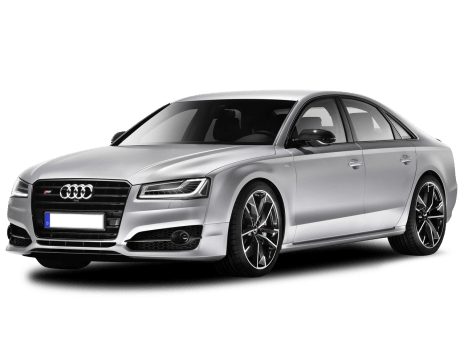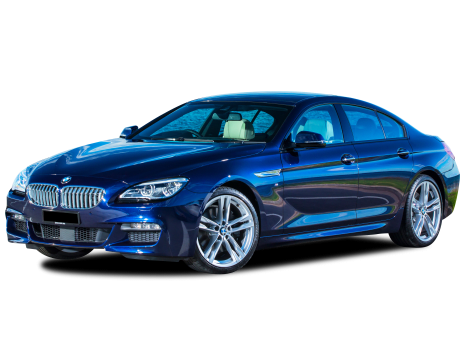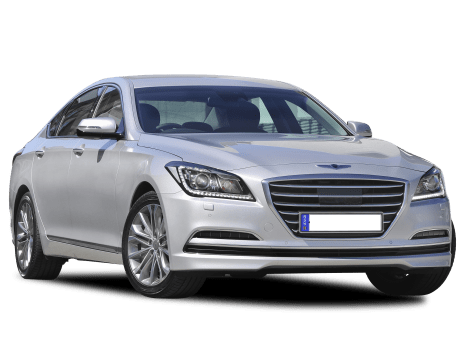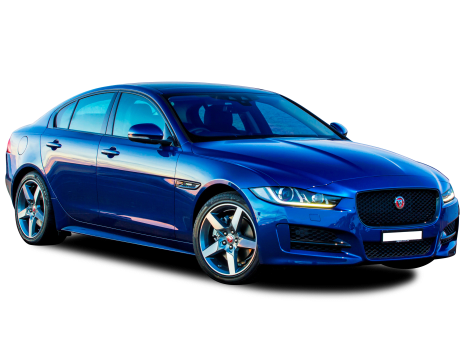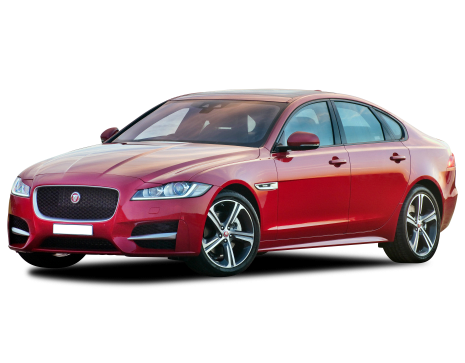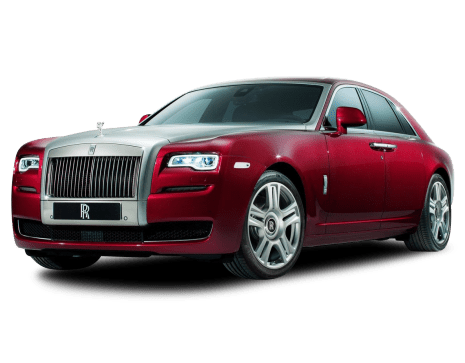
BMW 5 Series VS BMW M5
BMW 5 Series
Likes
- Dynamic ability belies its weight
- Plush and ergonomic interior
- Three variants all have strengths
Dislikes
- 520i is pricey for 153kW four-pot
- Styling a little gaudy in places
- Multimedia could be simpler
BMW M5
Likes
- Effortless power
- Dimensions seem to shrink in sports mode
- RWD setting means much fun
Dislikes
- Hefty price hike
- Design, inside and out, could be more adventurous
- Still no phone mirroring
Summary
BMW 5 Series
More than half a century of 5 Series pedigree has led BMW to this, the first electric version of its venerable sedan, the i5.
It's true that electric cars come with benefits that suit the realm of luxury (or at least executive) motoring like their effortless acceleration and near-silent operation, so this new G60 5 Series has the potential to be the best yet in its ‘i5’ form.
But there are rivals, well-liked ones at that, which BMW must contend with to snatch the spot at the top of the large premium sedan ladder technically held currently by the Porsche Taycan in terms of sales - though Mercedes’ E-Class would lead if its electric cousin EQE’s sales were combined.
Read more about
So, with names like that to go up against, BMW better have brought its A-game.
| Safety rating | — |
|---|---|
| Engine Type | — |
| Fuel Type | Hybrid |
| Fuel Efficiency | —L/100km |
| Seating | — |
BMW M5
Remember back when people were saying the BMW M5 would lose a little something by shifting from its traditional rear-wheel drive set-up to all-wheel drive?
It would drain a little sparkle, maybe. Or some excitement. It would become more predictable, more placid - hell, even boring.
But hindsight is always 20/20, and we know now that switching to AWD has done nothing but allow BMW to funnel even more power into the tarmac, with the German brand upping power outputs and dropping lap times in one fell swoop.
Consider the M5 Competition, then, BMW’s way of delivering the ultimate 'I told you so'. Because it’s not just the most fun, most potent AWD M5 ever - it’s the best M5 period.
| Safety rating | |
|---|---|
| Engine Type | 4.4L turbo |
| Fuel Type | Premium Unleaded Petrol |
| Fuel Efficiency | 10.6L/100km |
| Seating | 5 seats |
Verdict
BMW 5 Series8/10
There’s no getting around the i5 being a rather expensive offering. More than $150,000 to get into an electric sedan that’s not much faster than a hot hatch is a big ask, but there’s plenty to enjoy about the 5 Series.
Things like its heated leather seats shouldn’t be the reason you’re willing to spend so much on a sedan when a $50,000 hybrid SUV will score you the same, instead it’s the fact the 5 Series is a delight to drive and hasn’t lost the feeling of prestige the badge has earned over the last half a century.
In terms of value - if speed isn’t your focus and you’re less of a gadget-type-operator when looking at cars like this - the 520i has the style and comfort you’d need and at $100K less than the M60.
And in terms of large electric sedans, the i5 eDrive40 is cheaper than a Porsche Taycan (by a little) or an Audi e-Tron (by a lot). The Genesis G80 Electrified is the closest cheaper rival, by about $10K, or the less powerful Mercedes EQE is similarly priced at $154,900.
Essentially, if you’re looking at a 5 Series, it might be worth considering if you really need it to be electric, but if so, there aren’t many alternatives in its category for the price.
Note: CarsGuide attended this event as a guest of the manufacturer, with meals provided.
BMW M57.8/10
The term bigger is better doesn't often apply to performance cars, but it fits the M5 Competition perfectly. Big inside, but small outside when it matters, BMW's new performance flagship might be expensive, but there's no shortage of bang for those bucks.
Is the bruising BMW M5 your high-performance sedan from heaven or hell? Tell us what you think in the comments section below.
Design
BMW 5 Series
If you’ve watched other members of the BMW family go into a new generation within the last few years - the 3, 4 and 7 Series particularly, you won’t be too surprised by what you see here. Especially with the latter, having seen the petrol variants look roughly the same as the electric ones.
BMW specifically made the petrol 520i and the i5 variants look similar for egalitarian purposes - to not disenfranchise 520i buyers who are still spending a fair chunk of cash but might not be ready to go EV.
That means all three variants score a mix of new and old. The kidney grille remains and isn’t as large as on the M3 or 4 Series, while the bonnet line following it and the ‘character line’ down the car’s side also remain. And yes, the Hoffmeister kink where the C-pillar meets the passenger window’s lower corner is still there.
On that C-pillar though is a ‘5’ stamped into the bodywork, new to this generation, while the front grille as mentioned has a glowing light surround - the brand’s ‘Iconic Glow’ already seen on the 7 Series.
Overall, thanks to being slightly larger in every dimension, the new 5 is starting to look bigger than a 7 Series from a little while ago. And that’s because it is - its body is overall longer than an E65 7 Series from the mid-2000s.
It’s 5060mm long 1900mm wide, 1515mm tall (97mm longer, 32mm wider, and 36mm taller). Its wheelbase is 20mm longer too at 2995mm.
BMW M58/10
Let’s start with the new stuff, shall we? The BMW M5 Competition gets a new colour ('Frozen Dark Silver'), as well as new 20-inch (and lightweight) alloy wheel designs, and the grille, aero-designed wing mirrors and boot lip are finished in high-gloss black. The quad exhaust pipes are a black, too, as is the rear diffuser. Elsewhere outside, though, it’s the more muscular 5 Series of old.
Parked next to the much smaller M2, you quickly realise just how much bulk the M5 is carrying. It stretches 4966mm in length and 1903mm in width, and it looks every centimetre of those dimensions in the metal.
Climb inside, and you’re greeted with the familiar BMW interior design, with a huge centre screen, digital driver’s binnacle and a spaceship-level number of buttons surrounding the shift lever. The M5 Competition also arrives with full leather (seats and dash) trim, with carbon-effect dash inserts and aluminium pedal and foot rest trims.
Is it the most adventurous design treatment, inside or out, that we’ve ever seen? Well, no. But it looks polished and premium outside, and feels plenty comfortable inside.
Practicality
BMW 5 Series
A longer wheelbase means more space inside, where the 5 Series also still looks fairly familiar to those who have spent any significant time in a recent model BMW.
BMW has historically been pretty bang-on with ergonomics, and the new-gen 5 does a good job of sticking to that. Comfortable sports seats and quality feel for the materials on touch points mean the 5 Series feels nice to be in, and relatively restrained interior design for a somewhat luxurious car means it looks nice too.
It’s let down only by a couple of things - its multimedia screen and Operating System 8.5 is a little less simple to use now, and requires more touching the screen than previous iDrive systems, rendering the scroll wheel less useful.
The BMW Interaction Bar too is a little tricky to see controls on, as well as lacking physical feedback for using controls. Vent flow controls are digital sliders on the Bar, while vent direction is controlled by an unusual ‘joystick’ style control nearby.
The rear seat is plenty spacious, as you’d expect from a large sedan, with climate controls and ports for charging devices in the rear.
BMW M57/10
As far as performance cars go, the M5 Competition is a rolling Swiss Army Knife. For one, it’s bloody massive, which pays considerable dividends for passengers.
Up-front, the seats are far enough apart to ensure you’ll be rubbing shoulders with exactly nobody. The centre console Is super wide (all the better for fitting all those buttons), allowing for a sizeable centre storage bin, joined by two cupholders and a second storage bin in front of the shifter which is also home to your USB, power and 'aux-in' connections.
In the back, there’s business-class levels of leg and headroom, and you can even fit another whole adult in the centre seat if you’re so inclined. The pull-down seat divider is home to two extra cupholders, sitting in front of a thick armrest, and the rear air vents get their own temperature controls. There’s an ISOFIX attachment point in each window seat, too. Pop the capacious boot and you’ll find 530 litres of storage space.
Price and features
BMW 5 Series
There are three members of the new 5 Series family from launch, with a base 520i starting things off from $114,900 before on-road costs.
It’s the only petrol-powered (with mild-hybrid, we’ll come back to this) variant in the trio, but it does have a fairly extensive list of features as standard. In terms of tech and comfort, most of what comes with the 520i is available further up the range too, with the major differences being drivetrain related.
In the 520i, the interior upholstery is synthetic ‘Veganza’ leather with Alcantara, though optional Merino leather is a $4000 BMW Individual option. The front seats are heated as standard, however, and electrically adjustable with memory settings and lumbar support.
A 12.3-inch instrument display paired with a 14.9-inch multimedia display are standard across the range, running BMW’s Operating System 8.5, while a head-up display, ambient lighting, wireless phone charging tray and BMW’s ‘new’ Interaction Bar are included too - a crystalline-style strip across the dash with touch-sensitive ‘buttons’ like the climate controls.
A panoramic glass roof - unable to be opened - is standard too, while the 520i’s sound system is a Harman Kardon set-up with 12 speakers.
Exterior features are quite similar to the more expensive i5 variants, with Adaptive LED headlights, automatic boot opening, an M design kit with front and rear aprons, side sills, and BMW’s Iconic Glow kidney grille surround.
Optional in the 520i is an ‘Enhancement Package’ which adds a choice of aerodynamic 21- or 20-inch wheels, metallic paint, and a 655-watt 17-speaker Bowers & Wilkins surround sound system for $5400. One test car on the launch we attended was painted in a BMW Individual colour - Tanzanite Blue - which upped the price to $7800.
Moving up the range to the mid-tier i5 eDrive40, which starts from $155,900, adds Merino leather interior, metallic paint, Bowers & Wilkins surround sound and aerodynamic 20-inch wheels standard, but it also includes adaptive suspension and some other EV-related features.
BMW’s ‘Adaptive Suspension Professional’ comes with Integral Active Steering (rear-wheel steering) and is a step up over the M Sport suspension from the 520i, while its aero wheels function as a way to keep the electric car’s range being affected by resistance.
The eDrive40 also comes with an acoustic protection system to make ‘electric car noises’ to warn pedestrians, as well as BMW’s ‘Iconic Sounds’ for the occupants - basically a system that uses orchestral sounds composed by Hans Zimmer that are affected by acceleration intensity, speed, and drive mode.
It also comes with the standard kit for an electric car, a Mode 2 and Mode 3 charger, cable, and a five-year Chargefox subscription.
The top-spec i5 M60 xDrive ups the cost to $215,900 and the features list again slightly (as well as being far more powerful).
Its suspension is even more advanced, adding the brand’s Adaptive M Suspension Professional with active anti-roll, plus 21-inch aero wheels as a no-cost option. The M60 also gains an M rear boot lip spoiler.
Inside, BMW’s ‘Crafted Clarity Glass’ controls in the centre console are standard, as is ventilation for the front seats and a four-zone automatic air conditioning system.
BMW M57/10
Parking the M5 Competition on your driveway will require a $229,000 investment. That's not chump change, and a considerable jump over the regular M5, which arrived (in launch-edition guise) wearing a $199,529 price tag.
Outside, that money buys you new and lightweight 20-inch alloys, LED headlights with auto-dipping and active cornering, keyless entry and a four-tipped sports exhaust. Inside, expect a 'full leather' interior (seats, dash and door inserts),a nav-equipped screen which pairs with a 16-speaker stereo (but Apple CarPlay is a cost option) and dual-zone climate control.
Performance wise, M-designed variable dampers, a lightweight carbon-composite roof and a M sports exhaust all join the standard features list. Still, $30,000 is fair jump over the standard (and well equipped) M5. But if money is no object, you'll be buying plenty of fun.
Under the bonnet
BMW 5 Series
Despite BMW calling it ‘electrified’, the base 520i is only a mild hybrid so most wouldn’t realise unless they were told.
Its turbocharged 2.0-litre four cylinder puts out a modest 153kW and 330Nm, with power and torque sent to the rear wheels via an eight-speed automatic transmission.
BMW claims it’ll knock over the 0-100km/h sprint in 7.5 seconds, a few seconds too slow to blow anyone’s socks off.
The mid-spec eDrive40 has a little more kick to it, its rear-mounted electric motor capable of 250kW/430Nm and able to cut that time to 6.0 seconds.
It’s fitted with an 84kWh battery to draw its power from, the same as the 442kW/820Nm M60 with its all-wheel drive dual-motor setup.
The M-tuned i5 can hit 100km/h in a claimed 3.8 seconds. Bye bye socks, perhaps.
BMW M59/10
Yes, our all-electric future feels inevitable. And yes, there’s much fun and performance to be had from battery-powered EVs. But you can’t help but hope that future is a Star Wars style far, far away when you get acquainted with the BMW M5 Competition’s monstrous twin-turbo V8.
It’s good for a wondrous 460kW (up 19kW on the regular M5) and 750Nm. Both of which are big numbers, which are fed to all four wheels via an eight-speed 'M Steptronic' automatic. Happily, you can, at the push of some buttons, make the M5 a rear-driver again. It’s slower, but damn if it ain’t much more fun.
As a result, the performance numbers need to be seen (or better yet; felt) to be believed. The near-two-tonne M5 Competition will blaze from 0-100km/h in 3.3secs, 0-200km/h in 10.8secs, and push on to a limited top speed of 250km/h (or 305km/h, provided you do some BMW driver training).
Efficiency
BMW 5 Series
BMW claims the petrol 520i sips 6.7 litres per 100km from its 60-litre fuel tank, though we were unable to independently test any of the claimed figures on the launch day.
The base car has a theoretical range of 896km if it was possible to achieve the claimed fuel consumption figure for the duration of the whole tank - but it isn’t and realistically you could knock about 20-30 per cent off that, depending on how enthusiastically you drive.
In the i5 variants, the same 84kWh battery provides slightly different ranges due to the eDrive40 using 16.56kWh per 100km, and the M60 using 18kWh.
The eDrive40 has a claimed 550km maximum range, while the M60 has a 506km figure thanks to its extra motor and weight.
BMW M57/10
Well, BMW tells us you’ll return 10.7-10.8 litres per hundred kilometres on the combined cycle. But we would suggest that’s unlikely, unless you have Miss Daisy lounging in the back seat. Drive it like you definitely will drive it, and you can expect to pay for that privilege at the pump.
Emissions are a claimed 243-246g/km of CO2, and the M5 Competition’s 68-litre tank will demand a premium unleaded petrol.
Driving
BMW 5 Series
For some cars, the list of features is what really separates the variants, but that’s not the case for the 5 Series. As is a bit of a BMW tradition, the drivetrains dictate the different trim levels and prices, and there are three fairly distinct flavours of 5 Series.
Starting at ground level, the 520i might at first seem like a bit of boring vanilla. Except it’s actually quite smooth and light vanilla.
There’s not a lot to write about when it comes to its drivetrain, but the lightness of its engine and petrol tank combo when compared to EV batteries and motors is refreshing, and makes for a quite dynamic rear-drive sedan.
Its 153kW and 330Nm is delivered smoothly enough with the mild hybrid assistance doing a little in helping responsiveness, but without intervening in the gearshifts it doesn’t feel particularly keen.
It lacks the ride comfort of the i5’s adaptive suspension, but it’s able to be driven in a spirited manner that belies its size and even, to some extent its 1725kg kerb weight. Chocolate sprinkles on the vanilla, if you like.
It’s not fast, but it feels nimble compared to its electric siblings and can carry a fair bit more speed through corners, after which there’s room to notice its rear-drive characteristics.
It’s especially noticeable after getting out of the 2130kg eDrive40, though the extra power from its 250kW/430Nm motor makes for some more spirited acceleration and a little more excitement when exiting a corner, especially if you’re aiming to double-check if it really is rear-wheel drive. There’s a little more than choc-topped vanilla going on here.
The steering is, like in the 520i, direct and responsive, though in most cases is probably best set to ‘comfort’ rather than ‘sport’ in its settings.
The eDrive40 is rather comfortable and capable when barrelling through twisty backroads, and doesn’t feel out of hand for a five-metre-long sedan. It holds its weight well, and telegraphs when you might be approaching the limit quite sensibly.
When considering that, then, it’s impressive how brutally capable the 2305kg M60 is.
Here, we’re looking at a double-choc fudge with extra choc, and maybe some cookie dough in there for good measure. There’s a lot to like, but boy is it heavy.
It’s 580kg (or exactly half a Peugeot 208 GTi) heavier than the 520i, but it feels quick on its feet and its anti-roll seems to do a lot in terms of dynamics, the limiting factor really seems to be its tyres (which can and will squeal quite quickly to let you know when approaching said limit).
While you’ll need to take caution with how much speed you approach a corner with, you’re not going to lack acceleration on the other side, its all-wheel drive being less ‘fun’ but more efficient at getting you away from the bend than in the rear-drive eDrive40.
That adaptive suspension does also translate to a comfortable ride on relatively rough roads - only particularly bad bumps will reveal how much weight and pressure is being placed on each corner of the big sedan.
BMW M59/10
Things this large simply shouldn’t be this potent. Like John Goodman suddenly toppling Usain Bolt at the Olympics, the BMW M5 Competition is bulk-defyingly good at the fast stuff.
The secret is its ability to hide those sprawling dimensions on a race circuit or twisting road. BMW’s engineers have poured plenty of work into stiffening the chassis of the M5 Competition, from new anti-roll mounts to additional under-bonnet bracing, to make the brand’s biggest performance sedan feel more lithe and responsive when pushed.
And while its size never vanishes completely - and you find yourself praying you don’t encounter oncoming traffic on skinnier roads - engaging the Competition’s sportiest settings unlocks a Copperfield-level vanishing act.
The engine helps too, of course, pushing the M5 along with staggering ease, even when you’re pottering at suburban speeds. But really flatten your foot and the big V8 will force you to reassess your knowledge of physics. It’s really very fast, the Competition, the power flowing uninterrupted to the tyres, the engine still very willing to deliver more oomph long after your courage has jumped ship.
The steering, direct though it is, lacks some natural feel, but you are always left with the impression that the Competition is going to go where you point it.
More fun stuff? Well, you can switch the traction control to a half-off setting, allowing for some smoking, drifting heroics before it drags you back into line. BMW calls it M mode, and it’s designed to make a hero of even the most ham-fisted of pilots, myself included. The braver still can deactivate traction control all together which, combined with rear-wheel-drive mode, turns the M5 Competition into the biggest and possibly most expensive drift car of all time .
Away from the track, though, the Competition version of the M5 is almost as good as transforming into a comfortable everyday commuter as its less hairy siblings. The adaptive suspension can be softened, and the steering lightened, to make toppling traffic a doddle.
The keen-eyed among you might well have noticed we’re yet to touch on any major downsides of the drive experience. And you'd be correct.
Safety
BMW 5 Series
ANCAP hasn’t crash tested the new 5 Series. The last generation was a five-star car and it would be unusual to see that change with additional safety features - even with stricter testing.
The 5 Series comes with BMW Driving Assistant Professional as standard, with active cruise, lane assist and departure warning, front and rear cross traffic alert, collision prevention and intervention systems - in fact BMW says it has about 40 safety systems including an augmented reality dash display.
Its list of airbags includes front and side airbags for driver and passenger including one between the two occupants, as well as curtain airbags front and rear.
BMW M58/10
BMW is yet to confirm full specifications for the M5 Competition, but you can expect the safety offering to largely mirror that of the regular M5. And while the performance variant has not been crash tested, the regular 5 Series was awarded the maximum five-star safety rating.
Expect dual front, side and curtain airbags, as well as a knee bag for the driver, and a parking camera. You'll also find AEB, active cruise (which allows for brief spells of autonomy), thanks to its lane-keep assist.
Ownership
BMW 5 Series
BMW has a fairly industry-standard five-year/unlimited kilometre warranty on its new cars, while its electric car batteries are covered by an eight year/160,000km warranty.
For servicing, BMW offers numerous discounted packs and deals based on your preferences and desire to pay upfront.
For the 5 Series, a five-year/80,000km basic service package is $2400, though the i5 will have different needs and lower servicing costs not yet listed by the brand.
BMW M57/10
The ownership package is yet to be confirmed, the M5 Competition will be covered by BMW’s three-year/unlimited kilometre warranty.
Service intervals are condition, rather than time or distance, based, so the car will tell you when servicing is required.










